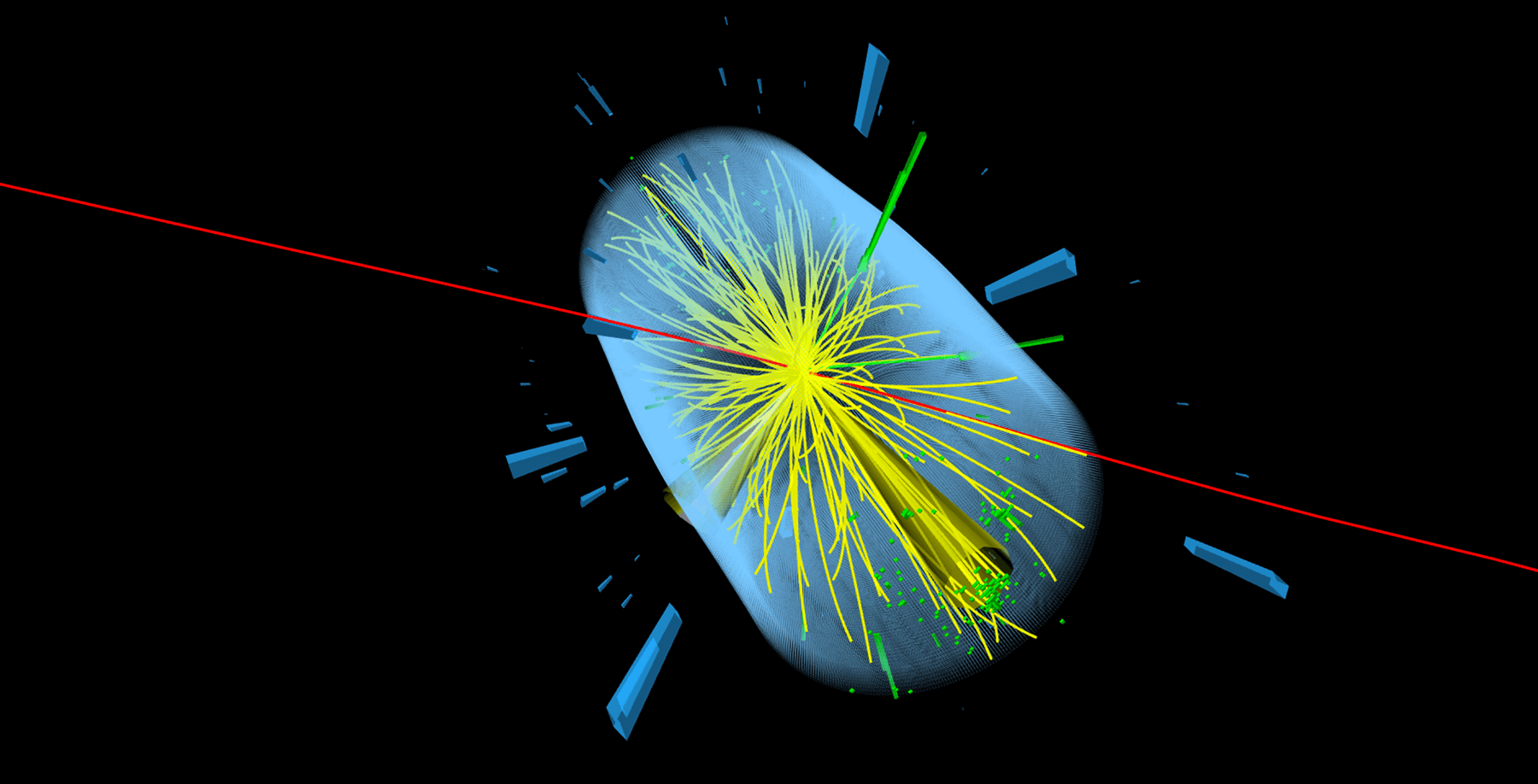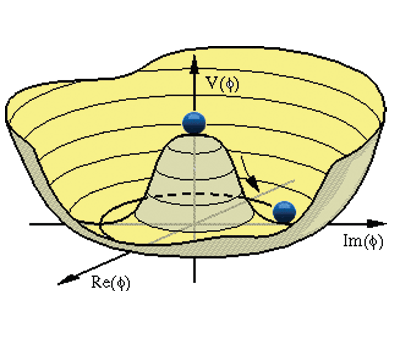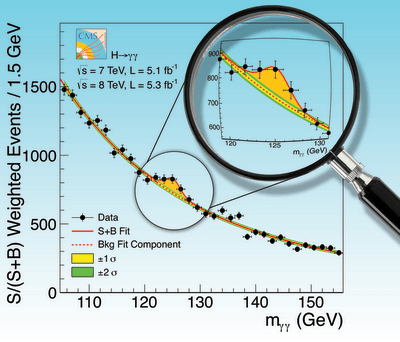CMS Higgs Physics Results
Since the observation of the Higgs boson and establishing the couplings between the Higgs boson and photons, Z-bosons, and W-bosons, CMS physicists have made huge strides in the quest to better understand the Higgs boson.
With the data collected in 2016, we were able to observe the decay of the Higgs boson to tau leptons - strengthening previous results from combining CMS and ATLAS measurements that show the Higgs boson coupling to fermions (https://cds.cern.ch/record/2276465?ln=en )
Using the same data set, the production of the Higgs boson via top-antitop quark associated production was also confirmed, showing that the Higgs boson interacts with quarks as well as with leptons ( https://cms.cern/news/observation-tth-production )
In 2018, we observed the decay of the Higgs boson to pairs of b-quarks, completing the observation of the Higgs boson's interactions with all three of the heaviest fermions (https://cms.cern/news/higgs-observed-decaying-b-quarks-submitted )
Having confirmed the couplings between the Higgs boson and the three heaviest fermions, CMS also showed evidence for the interaction between the Higgs boson and the muon, the lighter cousin of the tau lepton. (https://cms.cern/news/cms-sees-evidence-higgs-boson-decaying-muons)
By combining measurements in the diphoton and four-lepton decay channels, we were also able to measure the mass of the Higgs boson with unprecedented precision of 0.1%! ( https://cms.cern/news/cms-precisely-measures-mass-higgs-boson - note that the article is based on a preliminary result; the published mass value is 125.38 ± 0.14 GeV)
Recently we have also measured the width of the Higgs boson by studying its decay into two Z-bosons: https://cms.cern/news/life-higgs-boson
- ATLAS and CMS combine summer '11 search limits on the Standard Model Higgs
- CMS search for the Standard Model Higgs Boson in LHC data from 2010 and 2011
- New CMS Higgs Search Results for the Lepton Photon 2011 Conference
- New CMS Results for the EPS 2011 Conference






